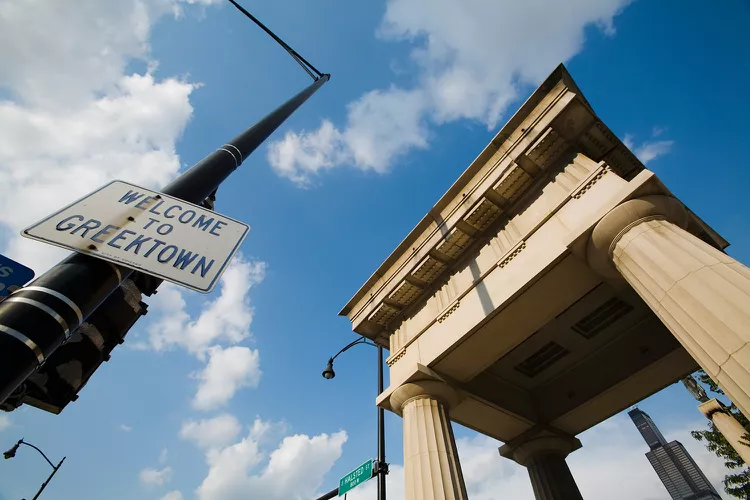1. Summary
This article explores the rich history of the Greektown neighborhood in Detroit, outlining its transformation over time. It highlights the arrival of Greek immigrants, the establishment of the Greektown Casino, and the community’s resilience amid urban changes.
The History of the Greektown Neighborhood
:max_bytes(150000):strip_icc():format(webp)/GettyImages-520640304-5948739c3df78c537bf42cf9.jpg)
The area now known as Greektown wasn’t always home to Greek immigrants. While the Detroit neighborhood dates back to the 1830s, the early inhabitants were primarily German, and the region was referred to as Little Berlin.
Greeks Arrive
Greek immigrants began making their way to Detroit from Greece in the 1880s, with the first documented arrival recorded in 1890. They settled along Monroe Street between Beaubien and St. Antoine, establishing bakeries, coffeehouses, and restaurants, such as Demetrios Antonopoulos’ Hellas Café in 1895. Initially, these immigrants lived above their establishments or on nearby Macomb Street.
By 1910, most of the German population had relocated, leading to a distinctly Greek community. Coffee shops filled with young Greek men playing traditional games and smoking water pipes became a common sight. During this period, around 250 Greeks collaborated to create Detroit’s first Greek Orthodox Church.
As time passed, even with new immigrant groups settling in the neighborhood, Greektown remained the heart of the Greek community, with many businesses continuing to thrive.
Keeping it Greek
In 1960, the neighborhood shrank to one block following the demolition of the Greek Orthodox Church. In response, local merchants organized the first Greek Festival in 1965, which played a vital role in preserving the neighborhood’s cultural identity amid Detroit’s decline.
Trapper’s Alley
:max_bytes(150000):strip_icc():format(webp)/GettyImages-150966497-5948750b3df78c537bf6c4b8.jpg)
In 1985, developers transformed historic buildings along Monroe Street into an enclosed mall, inspired by Faneuil Hall in Boston. The unique marketplace featured a variety of retail shops and eateries, creating a vibrant atmosphere that attracted visitors.
Greektown Casino
In 1996, Michigan voters approved three casinos to be built in downtown Detroit. Greektown Casino emerged as one of the finalists, despite earlier plans to cluster all casinos along the riverfront. After overcoming several obstacles, Greektown Casino found its permanent home within Greektown, specifically on the site of the former Trapper’s Alley.
Temporary Casino
Amid political negotiations, the city shifted its focus from riverfront development to establishing permanent casino hotels in time for the 2006 Super Bowl. The decision allowed the three casinos to build smaller facilities near their temporary locations.
Permanent Casino Hotel
:max_bytes(150000):strip_icc():format(webp)/GettyImages-157729096-59487e413df78c537b09e61c.jpg)
Greektown Casino opened its 400-room hotel in February 2009, strategically located across from its casino. A sky bridge connects the two structures, cementing Greektown’s status as a destination in Detroit.





